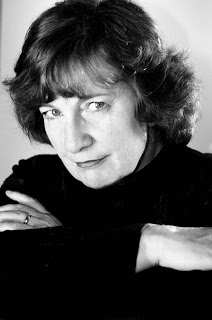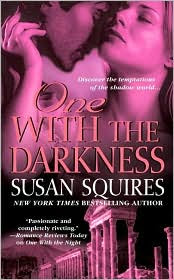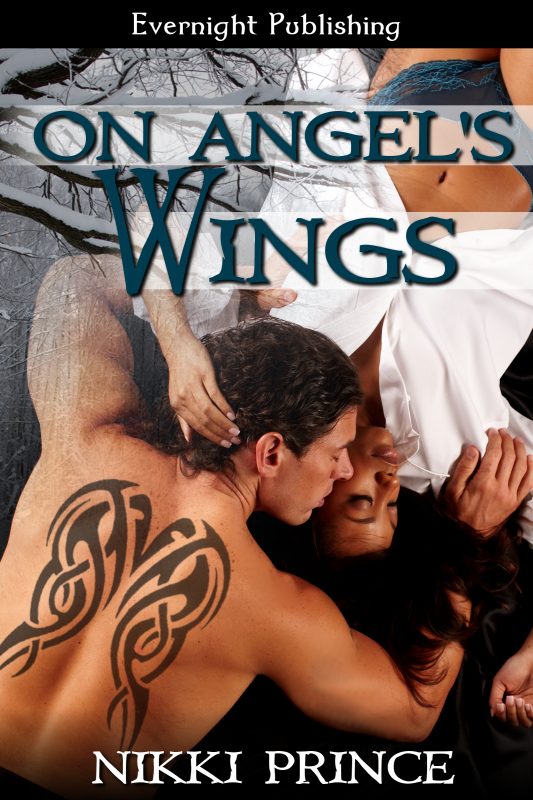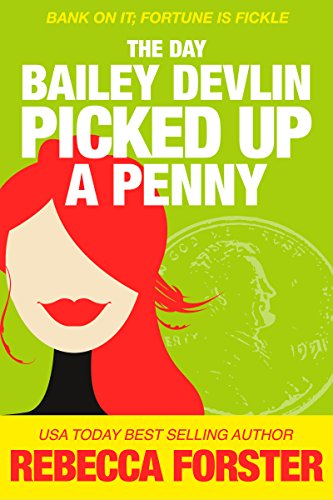Advice to Myself as a Newbie Author
October 22, 2008 by A Slice of Orange in category Advice to Myself as a Newbie Author by Shauna Roberts tagged as Advice to Myself as a Newbie Author, Susan Squiresby Shauna Roberts
http://ShaunaRoberts.blogspot.com
Today’s Guest: Susan Squires
Since beginning her career in 2000 with a Golden Heart win that became her first sale, Susan Squires has published eleven novels and three novellas, first for Dorchester and then for St. Martin’s Press. She has been a Rita finalist, and her work has won many regional contests and reviewer’s choice awards. Publisher’s Weekly named Body Electric one of the most influential paperbacks of 2003 and One with the Shadows a Best book of 2007. Her work has appeared on the New York Times Bestseller list. She’s known for breaking the romance rules, but her work always contains some element of the paranormal.
Her new and forthcoming releases are One with the Darkness (June 2008, St. Martin’s Press), the anthology Dead after Dark (December 2008, St. Martin’s Press), and Time for Eternity (May 2009, St. Martin’s Press).
Susan, if you could travel back in time to before you were first published, what advice would you give yourself?
 1. The number one piece of advice (and I did say this to myself, almost constantly) is “Hang In There.†I know it’s trite, but persistence counts. A lot. Remember, of all the people who say they want to write a book, hardly any of them will actually sit down and do it. Of all the people who sit down to write a book, very few will finish a draft. Of those, few will take the time to learn their craft and polish it. Of those who do, few will persist in trying to sell it.
1. The number one piece of advice (and I did say this to myself, almost constantly) is “Hang In There.†I know it’s trite, but persistence counts. A lot. Remember, of all the people who say they want to write a book, hardly any of them will actually sit down and do it. Of all the people who sit down to write a book, very few will finish a draft. Of those, few will take the time to learn their craft and polish it. Of those who do, few will persist in trying to sell it.
This isn’t depressing. It means that if you are willing to progress through all those stages, you are giving yourself a much better chance of succeeding, just because you’re still hanging in there when the overwhelming number of people who want to write have dropped by the wayside.
2. Don’t submit before you and your book are ready.. This is the primary mistake new authors new authors make, and I made it too. I submitted a book that was totally unpublishable (way too long, and not crisply written—it rambled) to lots of agents. Frankly, it was awful. Luckily, none of them will remember it or associate it with me. But I was not ready to submit. This leads to the next tenet:
3. Be willing to do the work to get better at writing. When I got all those rejections, it was a moment of truth for me. Was I willing to sacrifice to get better at my craft? For a long time I wasn’t sure. But when I decided I wanted to commit to writing, I went out and looked for the help I needed. I joined a critique group. I took classes at UCLA and went to writers’ conferences. After a while, I joined RWA to learn more about the business of writing. And I wrote the next book and the next, trying to get better at writing along the way.
4. To get better at writing, be willing to change. A book is a complex compendium of elements: story, character, voice, rhythm, theme, and imagery. We tend to fall in love with a particular formula early on, and it’s hard to get out of that habit. But that habit may be just what’s keeping you from selling. I don’t want you to water down your style and write “generic books.†Far from it. But there’s a difference between a book being written in your style and a book being poorly written. My natural style is to be a seat-of-the-pants Rambler. Unfortunately, that resulted in poorly written books. If I had kept true to what I find comfortable, I would never have sold. I had to tighten my style.
So, to break the cycle, write something uncomfortable—use a new format, a new time period. Push your stories and yourself to the edge. That’s how you get better. I know writers who always get the same comments about their work—“no conflict,†“unbelievable heroesâ€â€”and yet they never change their approach. The rejections they are getting won’t change either. A drive to improve also changes your attitude about contest results, rejection letters, and critiques. They still hurt, but you can turn each one that gives specifics into an opportunity to learn. Sure, sometimes the comments don’t even seem relevant. Ignore those. But if many say the same things, then take the hint.
5.  Don’t learn too much about the business too soon. I scared myself at a writer’s conference when I immersed myself in business instead of craft. The publishing business seemed overwhelming. I stopped writing altogether for a while. (Definitely a “don’t tell me the odds, kid†moment.) Concentrate on the craft first. Knowing you have a good book under your belt makes you more confident in the face of business realities.
Don’t learn too much about the business too soon. I scared myself at a writer’s conference when I immersed myself in business instead of craft. The publishing business seemed overwhelming. I stopped writing altogether for a while. (Definitely a “don’t tell me the odds, kid†moment.) Concentrate on the craft first. Knowing you have a good book under your belt makes you more confident in the face of business realities.
6. Which brings me to the next point: Don’t get sidetracked. I quit writing after my first bout of rejections and after I was spooked by the fact that writing is a business. It took me too long to re-commit to writing. When I wrote it was sometimes in fits and starts. I lost valuable years (yes, years) when I could have been building a career.
7. Don’t chase trends. I know you’ve heard that a million times. But it’s still hard not to do it, even now that I’m published. I was talking to my editor recently, and she was saying that urban fantasy still had some market steam. I pitched her an idea that could be billed as urban fantasy (uh, Susan, you were trying to follow trends.) She looked at me as if I were certifiable and said that urban fantasy heroines were all really hard and kind of bitchy, and she didn’t think I wrote those kind of heroines. She didn’t even like those heroines. I said of course my heroine wouldn’t be like that. And then we wondered together if it was really an urban fantasy. Would urban fantasy fans find that approach a relief or a transgression? And by the time I wrote my three currently contracted books, and the one I was pitching, would urban fantasy still have any steam? That’s three years in the future until it was published.
Lesson learned: Write a story that’s really you. Figure out how to market it later.
8. Don’t sell to the first person that tells you he/she likes your work. We all want to sell so badly we may consider selling to a publisher that really doesn’t have much distribution, simply because they are willing to send us a contract. Any contract. I know I was tempted. But don’t sell yourself short. It was really hard to hold out for a publisher who had distribution. (Luckily, I had an agent to talk sense into me.) But for me distribution was important. I wanted more than just to see my name on an ISBN. I wanted lots of people to read my book.
My husband is a writer, too. He and I used to joke that we wanted to write the kind of book “available on supermarket shelves everywhere.†So if you want a large audience, start submitting to the top line of publishers and give them time to consider and respond (that’s hard because they are slow). Then work your way down the list. In the meantime write the next book and progress in your craft, so you’re ready when someone says, “I love it—do you have any more?†Being able to produce others they could publish means a fast start to your career, while you write your first book that you are delivering on contract.
9. That brings us to agents. Get an agent if you can even though it’s hard. Unless you’re selling to Harlequin, an agent is a very good thing. If you are selling to Harlequin, it still couldn’t hurt. They get your work read faster. (Sometimes it’s the only way you can get read at all.) If it isn’t a top-of-the-line agent at first, any agent is better than no agent. I found my first one at a writer’s conference. I had also sent out thirty-seven query letters. I got some good responses from agents who liked my work and invited me to submit more or to submit other work if they didn’t think they could sell the one I pitched.
P.S. My agent couldn’t sell the first book I published (second one I wrote) to a top-of-the-line publisher. But I knew it had been rejected by seven major houses (and Harlequin would never have taken it), so I had tested the waters well before Dorchester offered for it—not a first-line house, but a second-line house with pretty good distribution if not great advances. I knew that was the best I could do for that book. If you don’t have an agent, but an editor offers for your book, get on the phone and find an agent immediately. They keep you from volunteering your first-born child if someone will put your name on a cover.
 10. The last piece of advice is the ever popular “don’t quit your day job.†I hear many would-be writers say they want to knock out a few quick books to make money and get them out of whatever job they currently have. I knew a person in one of my critique groups who took a second mortgage out on her house to live on while she hit it big. I hyperventilated every time she talked about it.
10. The last piece of advice is the ever popular “don’t quit your day job.†I hear many would-be writers say they want to knock out a few quick books to make money and get them out of whatever job they currently have. I knew a person in one of my critique groups who took a second mortgage out on her house to live on while she hit it big. I hyperventilated every time she talked about it.
Initial money for writing a book is often not great and it is slow in coming. My first publishing house paid fourteen months after the date the book was published (not purchased), other than a smallish advance. Very few people ever make millions in fiction book deals. For those few, lightning strikes through an alignment of the stars in public taste and opportunity (being there with the right book at the right time) as well as the author’s talent. You can’t count on that happening.
But don’t despair. Unless you or your family have enough money to support your lifestyle in other ways, what happens for most writers is a slow build of audience over many books, until you get to a point where that dreaded day job seems superfluous. When you write, do it because you love the act of writing and you want your stories read by others. Do what you love and the money will come. It most often comes slowly, as a reward for the satisfying work you’ve put in becoming a wonderful writer.
✥✥✥✥✥
To learn more about Susan, please visit her Website at http://www.SusanSquires.com. Her new anthology with Sherrilyn Kenyon, J.R. Ward, and Dianna Love, Dead after Dark, will be available in December at all major bookstores and can be ordered online from Amazon.com and Barnes & Noble.
0 0 Read moreAffiliate Links
A Slice of Orange is an affiliate with some of the booksellers listed on this website, including Barnes & Nobel, Books A Million, iBooks, Kobo, and Smashwords. This means A Slice of Orange may earn a small advertising fee from sales made through the links used on this website. There are reminders of these affiliate links on the pages for individual books.
Search A Slice of Orange
Find a Column
Archives
Featured Books
HOLE IN ONE
By day they had been fierce rivals in a collegiate golf competition, but at night . . .
More info →THE DAY BAILEY DEVLIN PICKED UP A PENNY
Oh, Boy! Oh, Bailey!
Find a penny, pick it up; just don't bank on Lady Luck.
Newsletter
Contributing Authors
Search A Slice of Orange
Find a Column
Archives
Authors in the Bookstore
- A. E. Decker
- A. J. Scudiere
- A.J. Sidransky
- Abby Collette
- Alanna Lucus
- Albert Marrin
- Alice Duncan
- Alina K. Field
- Alison Green Myers
- Andi Lawrencovna
- Andrew C Raiford
- Angela Pryce
- Aviva Vaughn
- Barbara Ankrum
- Bethlehem Writers Group, LLC
- Carol L. Wright
- Celeste Barclay
- Christina Alexandra
- Christopher D. Ochs
- Claire Davon
- Claire Naden
- Courtnee Turner Hoyle
- Courtney Annicchiarico
- D. Lieber
- Daniel V. Meier Jr.
- Debra Dixon
- Debra H. Goldstein
- Debra Holland
- Dee Ann Palmer
- Denise M. Colby
- Diane Benefiel
- Diane Sismour
- Dianna Sinovic
- DT Krippene
- E.B. Dawson
- Emilie Dallaire
- Emily Brightwell
- Emily PW Murphy
- Fae Rowen
- Faith L. Justice
- Frances Amati
- Geralyn Corcillo
- Glynnis Campbell
- Greg Jolley
- H. O. Charles
- Jaclyn Roché
- Jacqueline Diamond
- Janet Lynn and Will Zeilinger
- Jeff Baird
- Jenna Barwin
- Jenne Kern
- Jennifer D. Bokal
- Jennifer Lyon
- Jerome W. McFadden
- Jill Piscitello
- Jina Bacarr
- Jo A. Hiestand
- Jodi Bogert
- Jolina Petersheim
- Jonathan Maberry
- Joy Allyson
- Judy Duarte
- Justin Murphy
- Justine Davis
- Kat Martin
- Kidd Wadsworth
- Kitty Bucholtz
- Kristy Tate
- Larry Deibert
- Larry Hamilton
- Laura Drake
- Laurie Stevens
- Leslie Knowles
- Li-Ying Lundquist
- Linda Carroll-Bradd
- Linda Lappin
- Linda McLaughlin
- Linda O. Johnston
- Lisa Preston
- Lolo Paige
- Loran Holt
- Lyssa Kay Adams
- Madeline Ash
- Margarita Engle
- Marguerite Quantaine
- Marianne H. Donley
- Mary Castillo
- Maureen Klovers
- Megan Haskell
- Melanie Waterbury
- Melissa Chambers
- Melodie Winawer
- Meriam Wilhelm
- Mikel J. Wilson
- Mindy Neff
- Monica McCabe
- Nancy Brashear
- Neetu Malik
- Nikki Prince
- Once Upon Anthologies
- Paula Gail Benson
- Penny Reid
- Peter Barbour
- Priscilla Oliveras
- R. H. Kohno
- Rachel Hailey
- Ralph Hieb
- Ramcy Diek
- Ransom Stephens
- Rebecca Forster
- Renae Wrich
- Roxy Matthews
- Ryder Hunte Clancy
- Sally Paradysz
- Simone de Muñoz
- Sophie Barnes
- Susan Squires
- T. D. Fox
- Tara C. Allred
- Tara Lain
- Tari Lynn Jewett
- Terri Osburn
- Tracy Reed
- Vera Jane Cook
- Vicki Crum
- Writing Something Romantic
Affiliate Links
A Slice of Orange is an affiliate with some of the booksellers listed on this website, including Barnes & Nobel, Books A Million, iBooks, Kobo, and Smashwords. This means A Slice of Orange may earn a small advertising fee from sales made through the links used on this website. There are reminders of these affiliate links on the pages for individual books.










































